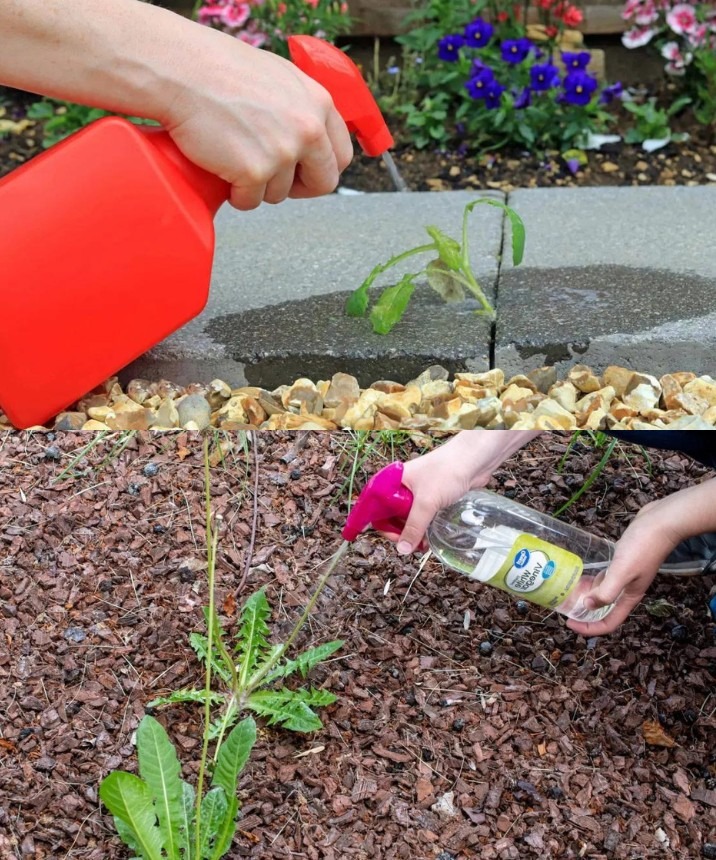Battling weeds can be a constant task in maintaining our garden or yard. However, using chemical weed killers can be harmful to the environment and human health. A more eco-friendly and safer alternative is to make your own homemade weed killer using natural ingredients like vinegar, salt, and dish soap. Here’s a simple recipe, usage tips, and potential risks associated with this method:
Recipe for Homemade Weed Killer: Ingredients:
1 liter of white vinegar. 1 cup of salt. 1 tablespoon of liquid dish soap. Instructions:
In a container, mix the white vinegar and salt until the salt is completely dissolved. Add the liquid dish soap to the mixture and stir gently to combine all the ingredients. Transfer the mixture to a spray bottle.
Usage Tips: Application: Spray the homemade weed killer directly onto the weeds on a sunny and wind-free day. Make sure to apply it accurately to avoid the spray reaching the plants you want to keep. Effectiveness: This natural weed killer may not be as potent as commercial chemical products, so multiple applications may be needed to achieve optimal results. Reapplication: You may need to reapply the homemade weed killer from time to time, as its effect is temporary and weeds may regrow over time.
Associated Risks: Damage to Desired Plants: The homemade weed killer may damage desired plants if not applied carefully. Avoid spraying on plants you want to keep and rinse off any excess spray that comes into contact with them. Effect on Soil: Excessive use of salt in the homemade weed killer may affect soil fertility and hinder the growth of future plants. Environmental Impact: Although safer than chemical weed killers, homemade weed killer can still have a negative impact on the environment if used excessively. Avoid spraying near water bodies and sensitive areas.
Final Considerations: Homemade weed killer with vinegar, salt, and dish soap can be an effective and environmentally friendly option for controlling weeds in your garden. However, it’s important to use it with caution and follow application recommendations to avoid potential risks and minimize its impact on the surrounding environment. Always consider local regulations and best practices for the use of natural herbicides.
